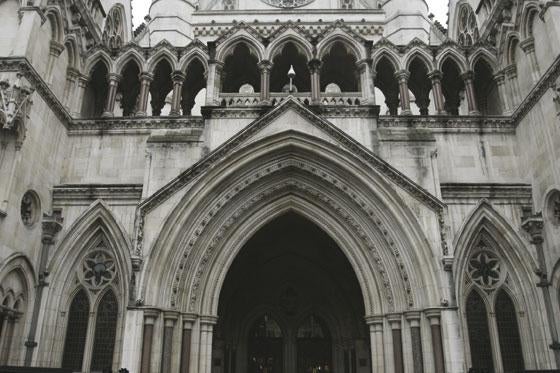
Restrictions which postpone reporting of trials should be used only rarely by a court wishing to alleviate possible problems faced by witnesses, the Court of Appeal has declared.
The statement came as the Court overturned a blanket ban on reporting the trial of seven teenagers accused of murdering a 15-year-old boy who was stabbed to death in front of rush hour travellers at Victoria Station.
The trial is the first of three being held in connection with the death of schoolboy Sofyen Belamouadden in March last year. The case has been split because there are a total of 20 defendants.
The trial judge, Judge Christopher Moss QC, made an order under section 4 (2) of the Contempt of Court Act 1981 which banned any reporting of the trials in the case until the conclusion of the final one.
The judge imposed the order at a pre-trial hearing at the Old Bailey in December, and reaffirmed it on January 6, despite having heard objections on behalf of the media from barrister Adam Wolanski.
The judge made the order because he was concerned that witnesses might change their evidence as a result of reading reports of the trials, and because he was worried about the stress faced by witnesses who were due to testify in two or all three of the trials, and the hostility they were likely to encounter.
The Press Association had earlier sent the judge a written representation arguing that the restriction was unnecessary, especially as the trial concerned a high-profile crime committed in a public place in front of hundreds of people which had attracted widespread media coverage.
A group of media organisations – MGN, Telegraph Media Group, Associated Newspapers, Guardian News and Media, and Independent Print – then appealed against the restriction.
Gavin Millar QC, for the media, told the Court of Appeal – the Lord Chief Justice, Lord Judge, sitting with Justice Eady and Justice Simon – on Tuesday that there was no basis on which Judge Moss could have found that witnesses in the trial could encounter hostility as a result of the publication of reports of the proceedings – the defendants and their families and associates would know the identities of the witnesses anyway.
There was also no basis for the judge’s conclusion that if witnesses did encounter hostility, that posed a risk of prejudicing the administration of justice in the proceedings, he said, and the judge also had no grounds on which to conclude that if witnesses were to change their evidence, it would be as a result of their having read contemporaneous reports of the proceedings, and no basis for concluding that such changes in evidence would risk prejudicing the administration of justice.
The judge had also failed to consider whether any risk to the administration of justice could be dealt with by a less restrictive means that a blanket postponement order – for example by orders banning the identification of certain witnesses.
The judge, Millar argued, also failed to give proper consideration to the question of whether any degree of risk contemplated should be regarded as the lesser of two evils, and thus failed to give proper weight to the right of the media under Article 10 of the European Convention on Human Rights, which guarantees the right to freedom of speech.
The Crown Prosecution Service, which supported the reporting restrictions, argued that hostility to witnesses would prejudice the administration of justice, and said that the juries in the second and third trials in the case could be prejudiced by what they read of the events in reports of the first trial.
Lawyers representing defendants who would be involved in the third trial argued that publication of reports of the first and second proceedings could prejudice the juries, and persuade witnesses to change their evidence to match what they had read or heard of the events as recounted in the first trial.
At one stage it was also suggested that if reporting were to be allowed, the Court should order that any accounts which appeared on the Internet should be removed after two weeks, to reduce the risk of prejudice to jurors in the subsequent trials.
The Lord Chief Justice said the media’s application raised an issue of importance.
The circumstances of the “very public” murder in which the victim was stabbed repeatedly at Victoria station caused “public concern and legitimate interest”.
The trial judge had decided on the blanket ban on reporting after examining the position of witnesses in the case, who would have to give evidence in the three separate trials of the 20 defendants.
Many of the witnesses were very young, and many came from the same places as the defendants and would face “potential hostility” if giving evidence, which could be altered by “unpleasant situations” in which they might find themselves.
The effect of reports of the case might bring pressure upon the witnesses.
But the defendants and anyone else present in court would have no difficulties in identifying witnesses and their evidence – and this risk could not be avoided by imposing an order, Lord Judge said.
“We have come to the conclusion that in reality these concerns and the consequences of reporting on any high profile case would be common,” he said.
“The issue of how these cases are tried and how they are conducted by counsel on each side is never easy, but there is nothing about this case which is different from that of any other high profile case for the purposes of the imposition of a blanket prohibition on reporting.
“For all the reasons encapsulated in the two short words ‘open justice’, an order is only to be made when it is necessary for the purposes of ensuring justice is fairly and properly done in the cases in which an order has been made.”
Email pged@pressgazette.co.uk to point out mistakes, provide story tips or send in a letter for publication on our "Letters Page" blog
